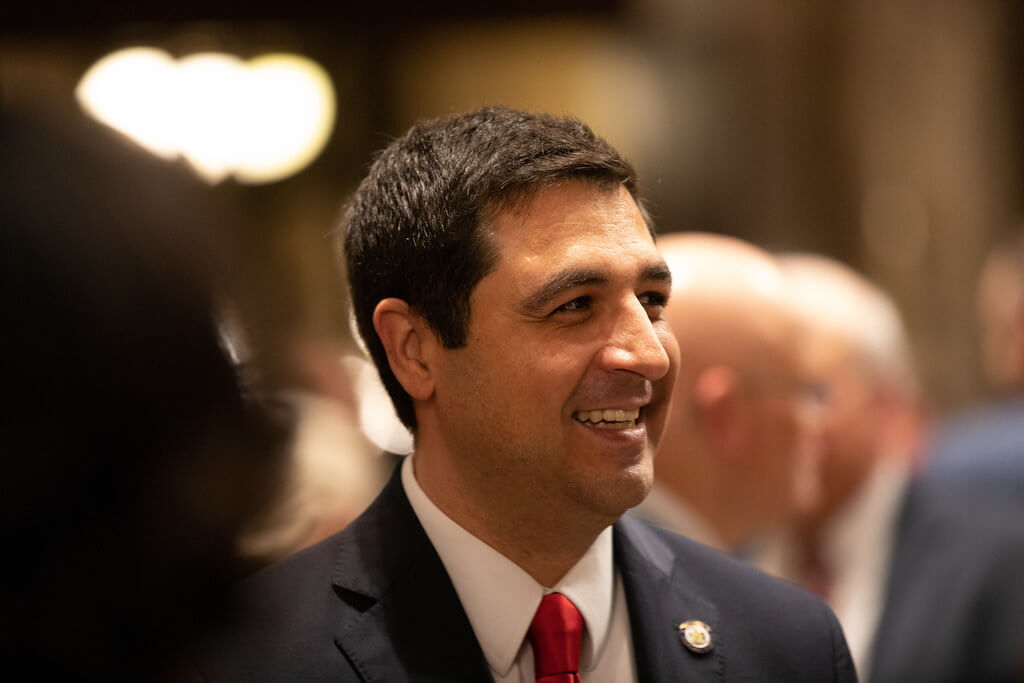State Crime Lab Improves Processing Time
Even during the pandemic, the turnaround time for lab work was faster.

Attorney General Josh Kaul at Governor Tony Evers’ first State of the State address in Madison, Wisconsin, at the State Capitol building on Jan. 22, 2019. Photo by Emily Hamer/Wisconsin Center for Investigative Journalism. (CC BY-ND 2.0)
The Wisconsin State Crime Lab (WSCL), like workplaces across the state, was forced to adjust in 2020 due to the COVID-19 pandemic. But because of the nature of the lab’s work, many tasks and analyses still needed to be done in person, leading to staggered shifts and adjustments to allow for social distancing.
Despite the challenges of the pandemic, the labs operated by the Wisconsin Department of Justice (DOJ) in Madison, Milwaukee and Wausau were able to keep up their pace of work from 2019 while also adding new technologies that aim to help the state solve more crime, according to the WSCL’s annual report.
Over the last year, while adjusting to a hybrid office and figuring out how to file reports from home while testing samples from the lab, DOJ added the capacity to better analyze footwear and fingerprints, test DNA, run toxicology to find trace amounts of drugs such as fentanyl and improve the ability to trace tool marks left after property crimes.
“Ultimately there are more cases that will get solved,” Kaul said.
Quickly running tests of DNA and other evidence was a key campaign issue for Kaul. Under Kaul’s predecessor, Republican Brad Schimel, the average turnaround time for DNA testing increased from 43 days to 76 days. In recent years, working through a large backlog of untested sexual assault kits has increased the turnaround time to more than 90 days. In 2020, even with the pandemic, the average turnaround time decreased by three days from 97 to 94.
The crime lab also improved its technology. A process called probabilistic genotyping allowed analysts to test DNA that would have previously had inconclusive results.
“What’s significant, of course, on the DNA front is we’re in a pandemic and there’s been this enhancement in what they can do because they’ve been trained on probabilistic genotyping,” Kaul said. “As a whole if you look at the numbers, what you’ll see is the crime lab kept up with the work it had amid this pandemic.”
Reprinted with permission of Wisconsin Examiner.
If you think stories like this are important, become a member of Urban Milwaukee and help support real, independent journalism. Plus you get some cool added benefits.





















